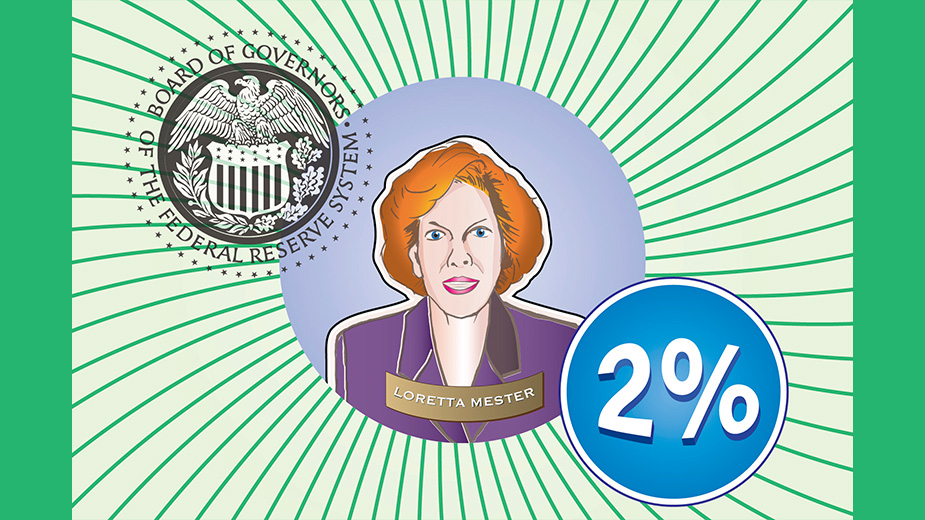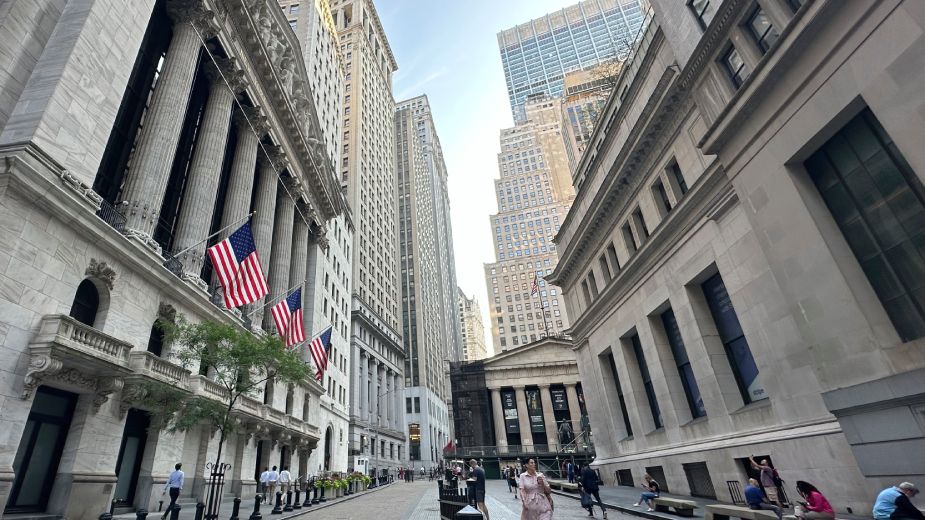Supply Chains Interrupted; ‘Unprecedented’ Impact
YOUNGSTOWN, Ohio — The dramatic decline in supply and demand as a result of the coronavirus leaves little doubt in the minds of economists that a recession is looming.
In fact, “it’s highly likely” we’re already in a period of a recession, said A.J. Sumell, professor of economics at Youngstown State University, when he was interviewed March 10 — well before Gov. Mike DeWine’s stay-at-home order. Typically, a recession is defined as two consecutive quarters of declines in gross domestic product.
“There’s no doubt that there’s a significant decline in supply and demand, the likes of which we’ve never experienced before as an economy,” Sumell says. “It’s already having an unprecedented impact to the economy. In all directions.”
During a typical recession, manufacturing feels the initial brunt. But with restaurants, hotels, conference centers and the travel industry almost immediately feeling the pain since the onset of COVID-19, “it’s directly affecting the service industry first,” Sumell says.
And it’s not isolated to a particular industry, he notes.
“The fact that it’s almost impacting every service sector, which is, by definition, dependent on face-to-face contact, and our economy is largely a service-based economy,” he says, “It’s truly affecting everything. Every industry is universally affected negatively.”
One industry of greatest concern is health care. In 2018, China’s total sales of pharmaceutical and health products reached nearly $220 billion, and its medical device market increased 22% year-over-year to $78.82 billion, according to Export.gov.
In mid-February, the coronavirus outbreak in China forced the country to shut its factories and disrupted its shipping ports. The Associated Press reports between then and mid-March, exports to the United States from China of hand sanitizer and testing swabs dropped by 40% and N95 masks were down 55%.
As a result, the national supply of personal protective equipment, or PPE, is not where it needs to be to combat the coronavirus pandemic. This has regional health systems and other health care providers to conserve their PPE by reducing elective and otherwise nonessential procedures, while local departments of health and county emergency management agencies work to get what they can from the state and other sources, including donations.
“When you monitor the number of containers coming to the country, there’s a tremendous drop in that, says Mousa Kassis, director of the Ohio SBDC Export Assistance Network on the campus of YSU. “That is definitely going to have a disruption in the supply chain.”
Shipments coming in from China on the West Coast, particularly to San Diego, “already have suffered tremendously” during the last three months of 2019 from the trade war between the United States and China, Kassis, says, with drops of 18% to 20% each month.
Now with the COVID-19 pandemic, those shipments are further disrupted from China, India, southeastern Asia and Europe as those regions deal with the virus, he says. Shipments of consumer goods, medical supplies and medical units will suffer, and the trucking and rail industries will also be affected, he says.
“It’s definitely a disruption of the supply chain,” Kassis says. “The problem is, in the globalized market the supply chain has become so interdependent. To fill the vacuum, it’s going to take time and isn’t going to be that easy to know who is the supply chain supplier.”
The automotive industry, for instance, has about 5,000 suppliers, and each of those suppliers has 120 of its own, he says. “And the auto industry doesn’t even know all of them,” he adds.
To fill the vacuum, the United States will need to look to other countries, as some companies had already started doing before the virus started, he says. Some started moving their supply chains to Vietnam, which doesn’t compare “because Vietnam isn’t as developed as China and isn’t as efficient as China,” he says.
A recent survey of retailers by Digital Commerce 360, an e-commerce news and research organization, found nearly half of those surveyed expect some economic downturn in revenue because of the coronavirus. According to 80% of retailers surveyed, the virus’ impact on consumer confidence is one reason for the impact.
Retailers are split on whether the pandemic will lead to increased e-commerce revenue (36% of retailers) or will hurt their online revenue (32%). Most are being prositive with their approaches, with just 36% saying they will take a “wait-and-see” approach to the level of action they are taking. As the virus progresses, 44% expect production delays, the survey found.
“Much of the challenges retailers face in our interconnected world is supply chain-related,” said Lauren Freedman, senior consumer insights analyst with Digital Commerce 360. “When asked ‘which of the following actions are you taking as a result of the coronavirus,’ supply chain communication (48%), contingency planning (34%) and hopes to minimize disruptions (32%) top the list of retailer actions.”
For some companies, seeking materials from another country isn’t an option. Youngstown Tile and Terrazzo is starting to have a few issues with stocking its inventory of terrazzo flooring tile, says owner Joshua Cohol, who was recently in Chicago for a meeting with vendors. While the company has plenty of material in stock for current projects, “the biggest issue now is what’s not coming out of Italy,” he says.
“There is an abundance of materials here in the U.S.,” Cohol says. “Until those supplies get diminished, which can happen quickly, it just depends on how this whole thing goes.”
The Business Journal spoke with Cohol before Gov. Mike DeWine’s stay-at-home order issued March 22, which required all nonessential businesses to close by 11:59 p.m. the following Monday. At the time, Cohol employed 20 working on five projects with 30 more on the calendar, and he was concerned about further restrictions on business.
“We do have schedules, job requirements and liquidated damages,” Cohol said. “To what effect are those going to change if we were shut down for a month, that would greatly impact us.”
Some entities have stepped up in an effort to fill in gaps in the supply chain. America Makes, Youngstown, is partnering with the Food and Drug Administration to effectively and safely meet the needs of health care workers by producing products through additive manufacturing.
America Makes has launched AmericaMakes.com/covid-19 as an online repository to connect the capabilities of the additive manufacturing industry with specific needs of health care providers by recording necessary information from both parties and “eventually include a pathway for designs to be uploaded for review to ensure they meet medical standards,” and make them downloadable for production, according to a statement from the organization.
“As the Department of Defense Manufacturing Innovation Institute for additive manufacturing, America Makes’ mission is to drive collaboration in our industry to meet the needs of the U.S. government and manufacturing base,” according to the statement. “This mission couldn’t be more clear today with the ongoing COVID-19 crisis and pending supply shortages throughout the U.S. We believe this repository will play a critical role in meeting the needs of front line health care workers.”
Members of the additive manufacturing community and health-care industry can visit the site and click the appropriate button to fill out the submission form.
For additive manufacturers, forms request specific information on their roles in the supply chain, material and print capabilities and capacity, design tools and engineering services and any additional capabilities.
Health care professionals are asked to provide information on their needs for personal protective equipment, including type and quantity, as well as any additional needs.
YSU’s Sumell expects reductions in shipments from Italy and other parts of Europe for the next several weeks, he says. For now, he advises businesses to heed the same advice that individuals are getting: hunker down and try to hold on as long as possible.
“Everybody’s going to be negatively impacted. The government has been quick to respond to offering immediate aid,” he says.
For anyone concerned about his financial well-being, Sumell advises not to be reluctant to fill out applications for aid from the government. And he offers a light at the end of the tunnel, saying that as dismal as the economic effect is now, once the pandemic is over, there will be a “significant rebound to follow.
“I’m fairly confident of that,” he says.
Copyright 2024 The Business Journal, Youngstown, Ohio.



